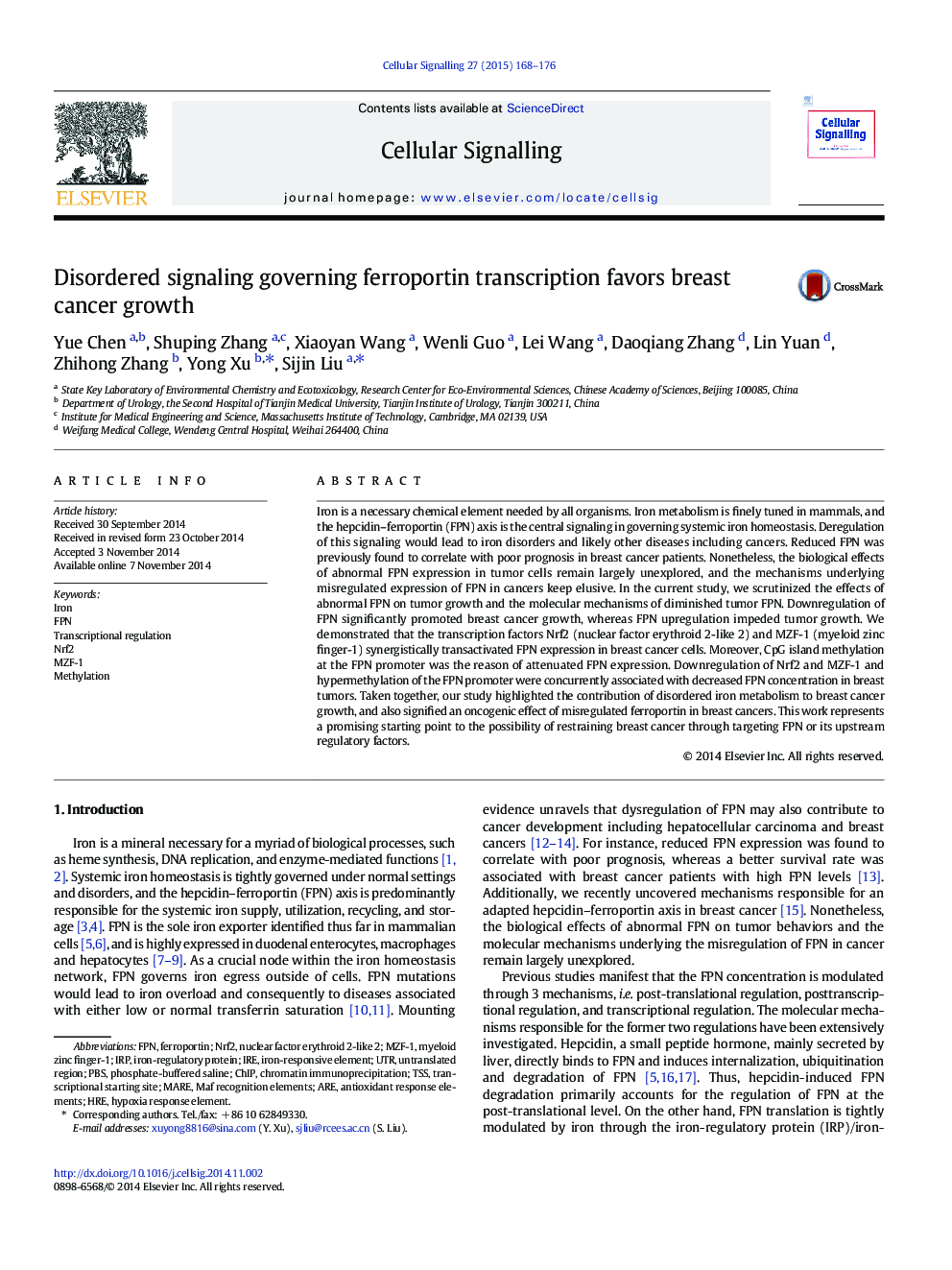| Article ID | Journal | Published Year | Pages | File Type |
|---|---|---|---|---|
| 10815158 | Cellular Signalling | 2015 | 9 Pages |
Abstract
Iron is a necessary chemical element needed by all organisms. Iron metabolism is finely tuned in mammals, and the hepcidin-ferroportin (FPN) axis is the central signaling in governing systemic iron homeostasis. Deregulation of this signaling would lead to iron disorders and likely other diseases including cancers. Reduced FPN was previously found to correlate with poor prognosis in breast cancer patients. Nonetheless, the biological effects of abnormal FPN expression in tumor cells remain largely unexplored, and the mechanisms underlying misregulated expression of FPN in cancers keep elusive. In the current study, we scrutinized the effects of abnormal FPN on tumor growth and the molecular mechanisms of diminished tumor FPN. Downregulation of FPN significantly promoted breast cancer growth, whereas FPN upregulation impeded tumor growth. We demonstrated that the transcription factors Nrf2 (nuclear factor erythroid 2-like 2) and MZF-1 (myeloid zinc finger-1) synergistically transactivated FPN expression in breast cancer cells. Moreover, CpG island methylation at the FPN promoter was the reason of attenuated FPN expression. Downregulation of Nrf2 and MZF-1 and hypermethylation of the FPN promoter were concurrently associated with decreased FPN concentration in breast tumors. Taken together, our study highlighted the contribution of disordered iron metabolism to breast cancer growth, and also signified an oncogenic effect of misregulated ferroportin in breast cancers. This work represents a promising starting point to the possibility of restraining breast cancer through targeting FPN or its upstream regulatory factors.
Keywords
Related Topics
Life Sciences
Biochemistry, Genetics and Molecular Biology
Biochemistry
Authors
Yue Chen, Shuping Zhang, Xiaoyan Wang, Wenli Guo, Lei Wang, Daoqiang Zhang, Lin Yuan, Zhihong Zhang, Yong Xu, Sijin Liu,
